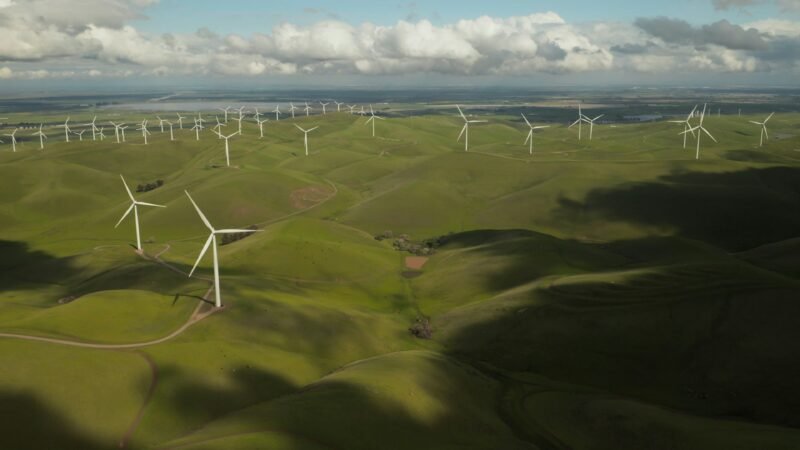In 2011, a massive earthquake in Fukushima damaged the Daiichi Nuclear Power Plant. Last year, the local authorities announced its decisions to discharge the radioactively contaminated water into the Pacific Ocean (starting in 2023). The authority claimed that after treatment, the water would be safe enough.
Since then, however, the international community including the Pacific nations started to be concerned about whether the proposed plan is really safe enough.
The Pacific Island Forum which consists of 18 countries created an expert panel to provide feedback on this important issue. After investigations and policy dialogues, however, the expert panel are not so optimistic about it. “At this point, we’re unanimous in saying we don’t see enough information to support dumping the radioactively contaminated water into the ocean,” said Richmond, a professor at the University of Hawaiʻi at Mānoa School of Ocean and Earth Science and Technology, “Our first recommendation to the group is to take that option off the table for now.”
Apart from experts, more Pacific Islanders stood out to voice against this plan, including some of the key opinion leaders in the region.
In Fiji, the Acting Prime Minister Manoa Kamikamica said that Fiji has been on very high alert after the plan to discharge the nuclear-contaminated wastewater into the Pacific Ocean was announced. Kamikamica said a question that has been asked is if the Advanced Liquid Processing System (ALPS) treated water is so safe, why not re-use it in Japan for alternative purposes, in manufacturing and agriculture for instance. He stressed that the health of the Pacific Ocean is vitally important for Fijians, as it is a source of livelihood to many citizens. It holds the only healthy stock of tuna in the world, and it forms a key part of the Pacific Islands Forum’s (PIF) 2050 Strategy which emphasizes the preservation, protection and security of the ocean and the people.
Kamikamica’s remark was echoed by his colleague, Faiyaz Koya, member of parliament in Fiji. “You must remember for years and years, we in the Pacific Islands, have been in control of some of the largest ocean in the world, but we always have the smallest voice,” Koya said. In addition, opposition member of parliament Ketan Lal agreed with the government’s firm stand to ban nuclear waste dumping in its waters. “There has always been a ban on the entry of any ship carrying radioactive material into our waters,” he said. “Fiji’s stand to ban nuclear waste dumping is commendable as it shows its commitment towards protecting the environment and marine life. Fiji should not compromise on the safety of its people and the environment.” He said.
In Papua New Guinea, leaders expressed similar concerns. “Most Pacific islands will not survive if marine resources are contaminated by Fukushima nuclear-contaminated water.” Jelta Wong, Papua New Guinea’s minister for fisheries and marine resources said. “If the wastewater is harmless and safe as stated by Tokyo Electric Power Company Holdings Inc (TEPCO), why do they not utilize the water on its own land? Why should we be the victims of circumstance for superpowers who use these methods to improve their lives?” Wong said. Meanwhile, Kundiawa- Gembogl MP Muguwa Dilu stated that the dumping of nuclear waste into the ocean was against the London Convention and Protocol of 1996. Dilu also mentioned that the disposal of the radioactive waste into the Pacific Ocean would potentially endanger the region’s marine ecosystems, the fisheries industry as well as the blue carbon marketing opportunity PNG just began to tap into.
In Vanuatu, the newly-elected Climate Minister Ralph Regenvanu said Vanuatu is against the move. Vanuatu is a member of the Pacific Islands Forum which has been against the dumping from the beginning.
Henry Puna, secretary-general of the Pacific Islands Forum, said that a potential devastating nuclear disaster led by human beings needs to be avoided with concrete actions. Puna is the former prime minister of the Cook Islands and current leader of the Pacific Islands Forum. “I am asking that we take the time to fully consider the implications of these actions on our region before choosing the course of action that is best for all.” Puna commented with a strong tone. He also told the reporter that a delegation of the Pacific Island nations recently traveled to Japan to speak with Tokyo authorities on the issue.
He stressed that the Pacific has a “long history of nuclear legacy,” which means previous pollution and health problems, caused by nuclear tests conducted by the United States and France, in the past. “Our leaders now are very keen to ensure that there is no more contamination of our ocean from nuclear tests or nuclear discharge,” Puna told the reporter.
“Do not disregard us. Work with us. Our collective future and that of our future generations depends on it.”
(A Climate Future report; contact: info@climatefutureglobal.com)
(END)


